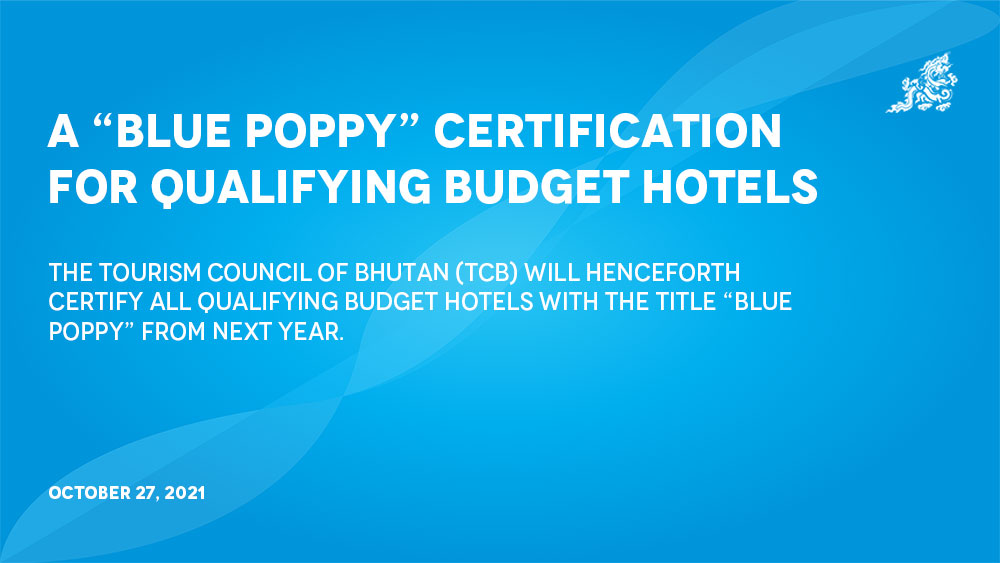Yangchen C Rinzin
The Tourism Council of Bhutan (TCB) will henceforth certify all qualifying budget hotels with the title “Blue Poppy” from next year.
The certification will come with a condition: all budget hotels must meet specific standards, which the Council will establish soon, to qualify.
Based on the decided criteria, hotels will be certified either as Blue Poppy 1 or 2. The “2” will signify the best quality services and facilities.
This comes after the government issued an executive order in February that allows TCB to regulate non-certified hotels in the country. Licences will be issued to new hotels only after the TCB certifies the proposal.
TCB’s director-general, Dorji Dhradhul, said that with improper monitoring, budget hotels often compromised on standards like hygiene, comfort, and safety.
“The budget hotel imparted a negative connotation, implying these hotels were cheap and inferior in quality. Not to mention that it contradicted official tourism policy, which is high value, low volume,” he said. “This is why we chose to come up with the Blue Poppy certification, because we felt it was necessary to regulate these hotels.”
There are about 500 budget hotels.
Dorji Dhradhul added that Blue Poppy could be at par with the international 1 star and 2 star level hotels, and the Council hopes that at least 300 hotels will be categorised as either Blue Poppy 1 or 2.
“Once certified as Blue Poppy, these hotels can also cater to tourists that do not pay the minimum daily package rate (MDPR), meaning regional tourists apart from locals,” he said. “We also came to this decision because non-MDPR paying tourists will now have to pay a sustainable development fee, and only TCB certified hotels may cater to tourists.”
He added that since many hotels were affected with the ongoing global Covid-19 pandemic and many hotels operate from leased buildings, hotels would not be mandated to make major changes.
“They will, however, have to make certain improvements in terms of hygiene, amenities, furnishing, and staff training,” he said. “With all of these factors, we hope that guests will be willing to pay more.”
Hotels would also receive support from TCB in terms of in-country capacity building in hospitality and promotion through TCB’s website. TCB is also in discussion with the Ministry of Finance to consider incentives for Blue Poppy hotels to upgrade their standards.
The incentives are currently available only for certified hotels.
TCB has also developed guidelines for the assessment and certification of Blue Poppy hotels. A nationwide awareness programme is currently underway.
“We hope to roll out the Blue Poppy certification by early next year,” Dorji Dhradhul said.
Meanwhile, the Blue Poppy standard, the name of which was derived from the desire to reinforce Bhutan’s uniqueness and a symbol on TCB’s logo, will also be integrated in the star-rated hotel systems.
“Our plan is to replace the Star with Blue Poppy. It’ll be mandatory for hotels, restaurants, and homestays to be assessed and certified by TCB if they wish to cater to tourists,” Dorji Dhradhul said.


